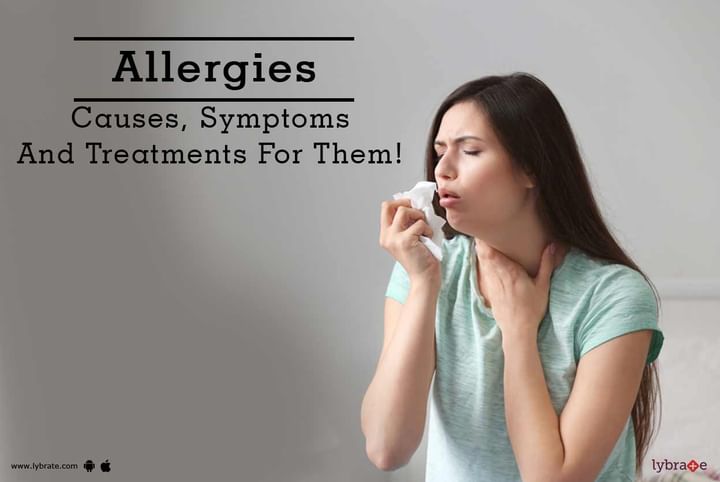Allergies - Causes, Symptoms And Treatments For Them!
Allergies are a reaction of your immune system to any foreign matter, such as pet dander, pollen or bee venom, and not everyone is affected in the same way.
Antibodies are substances produced by your immune system to protect you from harmful invaders that can cause infections or make you ill.
The immune system produces antibodies when it comes into contact with allergens. Your immune system can recognise any allergen as threatening even if it’s not. As a result, your skin, airways, digestive system or sinus gets inflamed.
Allergies can vary greatly in severity—from mild irritations to anaphylaxis (a likely life-threatening emergency). Allergies are mostly incurable; however, there are various treatments available to alleviate allergy symptoms.
Causes-
Common triggers of allergy include:
-
Airborne allergens, such as mould, dust mites, animal dander and pollen.
-
Certain foods, especially milk, eggs, shellfish, fish, soy, wheat, tree nuts and peanuts.
-
Insect bites, such as wasp stings or bee stings.
-
Medications, specifically penicillin-based antibiotics or penicillin.
-
Latex, or any allergen you touch, causes skin infections.
Symptoms-
Symptoms of allergy depend on its type.
-
Hay fever (allergic rhinitis) symptoms include:
-
Sneezing
-
Itching of the roof of the mouth, eyes or nose
-
Stuffy, runny nose
-
Swollen, red or watery eyes (conjunctivitis)
-
-
Symptoms of food allergy include:
-
Tingling mouth
-
Swollen throat, face, tongue or lips
-
Hives
-
Anaphylaxis (a critical, deadly allergic reaction)
-
-
An allergy caused by insect stings can manifest in symptoms such as:
-
Swelling at the site of the sting
-
Hives or itching
-
Breathing problems, wheezing, coughing or chest tightness
-
Anaphylaxis
-
-
A drug allergy can lead to symptoms such as:
-
Hives
-
Itchy skin
-
Rashes
-
Facial swelling
-
Wheezing
-
Anaphylaxis
-
-
Atopic dermatitis (skin allergy) symptoms include:
-
Itching
-
Reddened skin
-
Peeling or flaky skin
-
Treatment-
Treatments of allergy include:
-
Avoiding Allergens: Your doctor can help you take necessary steps to recognise and avoid the allergens that trigger allergies. This is usually the most relevant step in the prevention of allergic reactions and reduction of symptoms.
-
Medicines to Lower Symptoms: Eye drops, nasal sprays or oral medications are commonly prescribed to reduce reactions and alleviate symptoms.
-
Immunotherapy: If the allergy is severe or other treatments fail to relieve symptoms, allergen immunotherapy is recommended. In this treatment, you get injected by a number of clarified allergen extracts over the years.
- Emergency Epinephrine: If your allergy is severe, your doctor will provide you with an emergency epinephrine shot that you can carry with you everywhere.



+1.svg)
